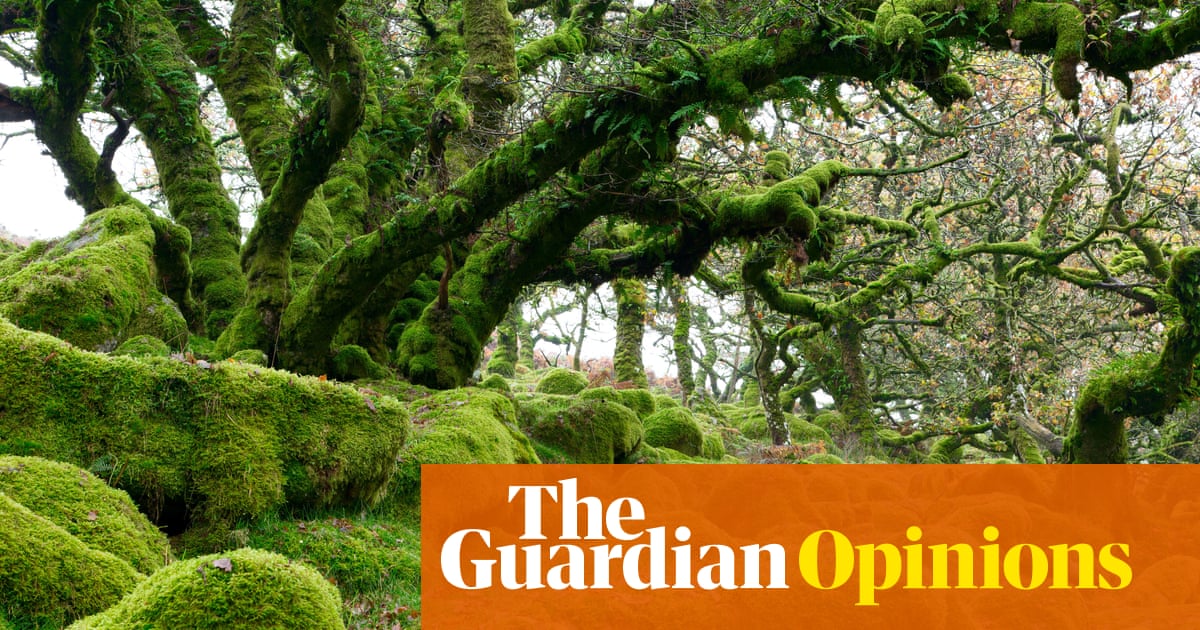
High on a ridge above the village of Inkpen in the North Wessex Downs, a gibbet looms like a sentinel. “Every time you come up, you just have to give it a pat. It’s the most grisly thing,” laughs Nicola Chester. The gibbet was used to display the bodies of two murderous lovers in 1676. Since then, the centuries have seen the gibbet brought low by lightning, political vandalism and rot, only to be resurrected each time with oak trees felled from the same estate.
Chester titled her award-winning nature memoir, On Gallows Down: Place, Protest and Belonging, after the macabre structure, and the hill that takes its name. “It’s a beacon for home, but also a ‘sending off’ place. A hotspot for migrating birds. A gathering place for stories and a conduit for protest. From it, you can see every chapter of my book, and all the places I’ve ever lived,” she says.
Her home in Inkpen for the past 19 years has been a small rented cottage, the property of wealthy landowners. It is in an ancient part of England inhabited since the Mesolithic era, and west Berkshire remains steeped in feudal propriety. Gamekeepers have been known to stalk the hills on the lookout for trespassing naturalists. “‘It used to get really unsettling,” says Chester.
Change is afoot, however. The local keeper has gone and an outbreak of bird disease has left the shoot silent for the first time in a century.
But there is still plenty for Chester to get angry about. She points to the woodland opposite, where recent felling has threatened a barn owl sanctuary. “I said, ‘You can’t do this. It’s against the law.’ It’s not just me – people know the barn owls are there.”
The scene could be one of many detailed in On Gallows Down. Time and again, Chester has confronted contractors as they bulldoze a landscape she does not own but fiercely protects. Her account makes a formidable impression. But in person, clutching a mug of tea with a picture of a stoat on it, she is warm and quick to laughter.
A rural, working-class writer in an all too rarefied field, Chester’s work is unusual for depicting the countryside as it is lived on the economic margins. She and her family, unable to afford their own home in England’s increasingly expensive rural property market, have always been tenants of aristocratic landowners, whose old-fashioned “tied” houses can be rented below the market rate – albeit with obligations attached. The “ghost of the old order of things”, as Chester calls it, is rarely far away.
As a young woman, she applied to study game and wildlife conservation management at agricultural college. This, as was rapidly made clear to her, was a route for aspiring gamekeepers – and female gamekeepers were unheard of. After a year of “dithering” on a horse ranch in the Canadian Rockies, she returned to Britain, working odd jobs to fund an English literature degree at King Alfred’s College (now the University of Winchester). Her father was a firefighter, her mother an assistant at the local council. Only a cousin in her family had been to university.
“It changed everything for me. I learned to critique, not just literature but also film, art and other media, and really write; to see more than one side of a story, to see depths and make my own interpretations. I loved those years. They allowed me the freedom to dream and study and write,” she says.
In 2003, Chester won the BBC Wildlife Magazine’s nature writer of the year award, opening the way to a column in the RSPB’s magazine, Nature’s Home, and a career as a professional writer. She was the magazine’s first female contributor. “Just stay away from anything controversial,” she was told when she started. “They expected me to write about children, family and stuff,” she says. Instead, she used her platform to document the destruction and wonder of wildlife. Since 2019, she has contributed to the Guardian’s Country Diary, capturing episodes of loss and beauty with her distinctive style.
From her garden at the foot of the hill, we set off for Gallows Down itself. The chalk mound dominates the horizon, building to the highest point in south-east England. Above us, paragliders skim out from its peak, circling like giant paper planes.
“You could hardly see the path before”, she says as we reach the hill, “but since lockdown there have been a lot more people coming up here, which is great!” Chester is a strong advocate of people’s presence in the countryside. “There’s that attitude of ‘Who are these strangers?’ and I just think, for goodness sake, we’ve got all this on our doorstep,” she says, gesturing to the vast open downland and the woods and fields on the plain below. “We’ve got to share it.”
In the distance we can see the Newbury bypass, the scene of the most famous anti-road protest in British history, an event in 1996 that radically shaped Chester’s early life. “This was our home. Had been – and still was – our playground,” she writes in On Gallows Down. “And here we were, sat round watching it all fall on TV.” The next day she was on the frontline.
The legacy of Newbury and the Greenham Common protests preceding it remain controversial, awkward reminders that when Berkshire’s countryside was threatened, it was locals, oddballs and anarchists who answered the call rather than its titled custodians – many of whom supported the bypass’s construction. Belonging, Chester believes, is earned through love and engagement, not inherited by deed.
In a country where half the land is owned by less than 1% of the population, nature can be destroyed overnight on a whim. “I wondered, could someone who doesn’t own or manage the land really have an influence?” she asks. “Someone whose only claim came through love and an intimate knowledge and understanding of the place?”
Now that the local keeper has gone, the land behind Gallows Down is visibly becoming covered in scrub. As we head back down the hill, Chester points out the remnants of the “private property” signs that had been placed along the open access downland. They have since been torn down.
And that is not the only sign that things may be changing. Until recently, a rainbow Pride flag was flying from the gibbet. “It got really tattered, but it was fantastic,” says Chester, as she hops over the nearest fence and guides us out across land she does not own.












